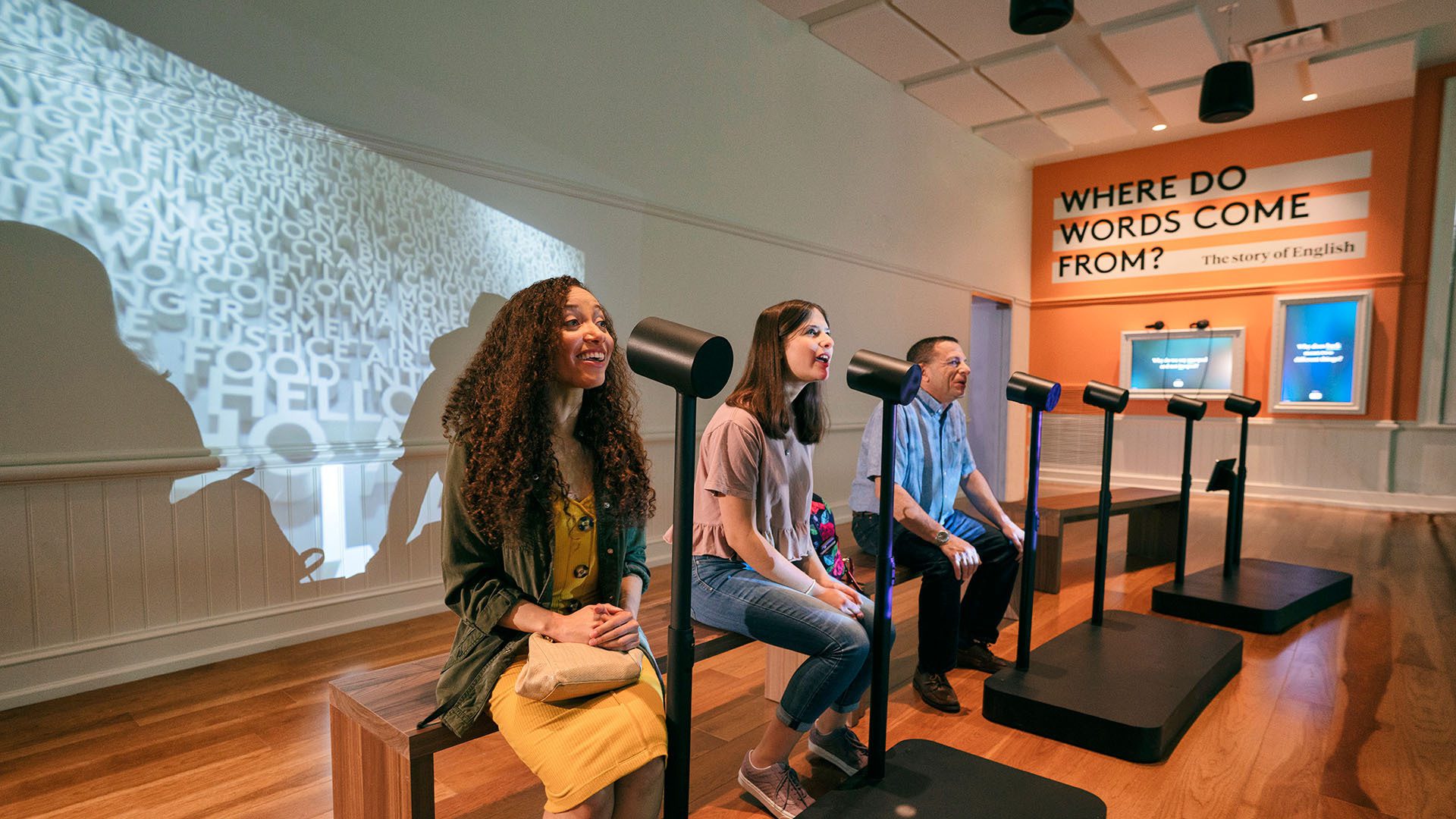- October 08, 2021
- By Jessica Weiss ’05
Starting next summer, University of Maryland language scholars will have a new place to conduct their research and a new source of participants for their studies: the Planet Word museum in downtown Washington, D.C. and its visitors.
A new $440,000 grant from the National Science Foundation funds a partnership between UMD, Howard University and Gallaudet University and Planet Word to advance research and public understanding about the science of language.
For example, experiments may look at what non-signing people believe about what makes various American Sign Language signs hard or easy to learn, why it’s easier to understand the speech of people we know rather than strangers, or whether we think differently when reading a text message versus formal writing.
The experiments will be interactive and fun, said Assistant Research Professor in UMD’s Maryland Language Science Center Charlotte Vaughn, who is leading the project.
“Language is already the topic of conversation at the museum, so there’s an unparalleled opportunity for our studies and activities about language science to be a seamless and memorable part of visitors’ experience,” she said.
Planet Word, opened in late 2020 and housed in the historic Franklin School building, aims to show the depth, breadth and fun of words, language and reading. Faculty from UMD’s Maryland Language Science Center, the Department of Linguistics, the Department of Hearing and Speech Sciences and the Department of English were involved in shaping the museum’s vision and programming. It has been a hope of the museum’s founder, Ann Friedman, to also have it be a space for research and discovery.
In addition to Vaughn, the lead project team includes Associate Professor in the Department of Hearing and Speech Sciences Yi Ting Huang and postdoc affiliate in the Department of Hearing and Speech Sciences Julie Cohen at UMD, as well as Assistant Professor of Psychology at Howard University Patrick Plummer and Assistant Professor of Linguistics at Gallaudet University Deanna Gagne. Other personnel include Jan Edwards and Rochelle Newman, both professors in the Department of Hearing and Speech Sciences at UMD; Colin Phillips, professor in the Department of Linguistics at UMD; and Laura Wagner, professor in the Department of Psychology at the Ohio State University.
Vaughn said the opportunity to partner with a historically Black university and the world's only liberal arts university for Deaf and hard-of-hearing people will allow for significant progress on issues central to the field.
“Engaging the diverse Planet Word audience in our activities will make our research stronger, more representative, and more widely accessible,” Vaughn said. “At the same time, our collaborative partnership, plus offering unique research experiences to students underrepresented in the field, works toward diversifying the future of the language sciences.”
The grant also funds the development of a training course in public-facing research, which will be offered for the first time at Planet Word next summer. Though offered through UMD, the course will be open to students from across the region. Those who take part will help lead the research studies, set to begin around the same time.
“Participating in public-facing research is an excellent opportunity for students,” said Huang. “Communicating science to broad audiences involves developing ways to hook people into engaging with questions when they have limited familiarity with the topic and unraveling scientific puzzles through the format of conversations.”
